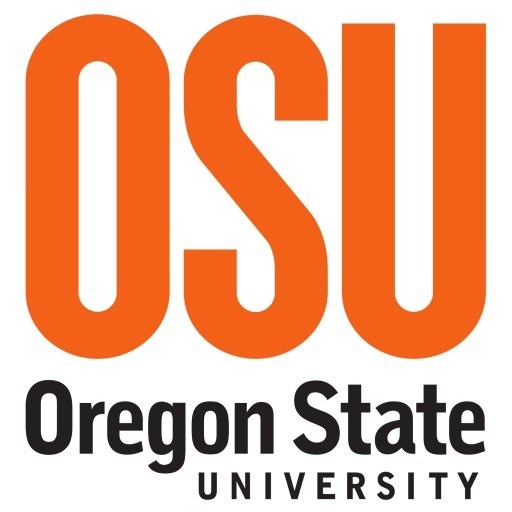Photos of university / #oregonstate
Public Policy at Oregon State University is a comprehensive interdisciplinary program designed to equip students with the skills and knowledge necessary to analyze, develop, and evaluate policies that impact communities, states, and the nation. The program emphasizes critical thinking, quantitative analysis, and effective communication, preparing graduates to address complex social, economic, and environmental issues through informed policy-making. Students have the opportunity to learn from experienced faculty engaged in research across diverse areas such as environmental policy, economic development, healthcare, education, and public administration. The curriculum combines theoretical foundations with practical applications, including case studies, policy analysis exercises, and internships with governmental agencies, non-profit organizations, and private sector entities. Oregon State University’s Public Policy program encourages an interdisciplinary approach, integrating insights from political science, economics, sociology, and environmental studies to understand the multifaceted nature of policy issues. Graduates will be well-prepared for careers in government service, non-profit management, consulting, and advocacy, or to pursue further graduate studies in public policy, law, or related fields. The program also emphasizes leadership development, ethical considerations, and the importance of diversity and inclusion in policymaking processes. By fostering a collaborative learning environment and providing hands-on experience, Oregon State University prepares its students to become effective policymakers and change-makers capable of addressing pressing societal challenges with innovative and sustainable solutions.
Detailed Course Facts
Application deadline any time Tuition fee- USD 29900 Year (National)
- USD 29900 Year (International)
- 180 credit hour program
- 45 credit hours apply from Pathway
- 135 credit hours remaining towards degree
- English
Course Content
TERM 1
- Academic Reading/Writing
- Academic Listening/Speaking
- Math Course - Variable Level*
- Lifetime Fitness for Health
- Lifetime Fitness for Health Bridge
- Physical Activity Class
- Academic Reading/Writing
- Public Speaking
- Introduction to Sociology
- Introduction to Sociology Bridge
- Introduction to Microeconomics
- English Composition
- English Composition Bridge
- United States Government and Politics
- United States Government and Politics Bridge
- Introduction to Macroeconomics
- During the fourth term students can complete additional classes to ensure that they are well prepared for their second year at OSU and on track to complete in 4 years.
English Language Requirements
IELTS band : 5.5 TOEFL iBT® test : 60
To study at this university, you have to speak English. We advice you to
take an IELTS test.Requirements
- High school diploma of a 2.5 GPA
- 16 years and above
Work Experience
No work experience is required.
Related Scholarships*
- Academic Excellence Scholarship
"The Academic Excellence Scholarship can provide up to a 50 % reduction in tuition per semester. These scholarships will be renewed if the student maintains superior academic performance during each semester of their 3-year Bachelor programme. The scholarship will be directly applied to the student’s tuition fees."
- Alumni Study Travel Fund
Scholarships for students who are already attending the University of Reading.
- Amsterdam Merit Scholarships
The University of Amsterdam aims to attract the world’s brightest students to its international classrooms. Outstanding students from outside the European Economic Area can apply for an Amsterdam Merit Scholarship.
The Bachelor of Arts (B.A.) in Public Policy at Oregon State University is designed to prepare students for careers in public service, government, non-profit organizations, and related fields that require a strong understanding of policy analysis, development, and implementation. The program emphasizes critical thinking, quantitative and qualitative analysis, and effective communication skills, enabling graduates to address complex societal challenges. Students enrolled in this program gain foundational knowledge in political science, economics, sociology, and public administration, which are essential disciplines for understanding how policies are formulated and enacted.
Oregon State University offers this program through its College of Liberal Arts and the College of Public Health and Human Sciences, providing a multidisciplinary approach that reflects the interconnected nature of public policy issues. Coursework typically includes classes in policy analysis, public management, ethics, law, and environmental policy, among others. Students are encouraged to participate in internships, research projects, and community engagement activities to apply their learning in real-world contexts. The program also benefits from OSU’s extensive network of governmental and non-profit partners, providing students with opportunities for experiential learning and professional development.
Graduates of the B.A. in Public Policy are equipped with the analytical skills necessary to assess policy options, evaluate stakeholder interests, and develop effective solutions. They are prepared for roles in policy analysis, legislative assistance, program management, advocacy, and more. The program also offers pathways for graduate studies in public policy, public administration, law, and related fields. OSU’s commitment to sustainability and social justice is integrated into the curriculum, fostering graduates who are socially responsible and environmentally conscious.
The program typically takes four years to complete and requires students to complete a combination of major coursework, electives, and general education requirements. Students can tailor their learning experiences to their interests by choosing various minors and concentrations offered by the university. Overall, Oregon State University’s Public Policy program strives to produce skilled, ethical, and innovative professionals dedicated to improving society through effective policy making.










